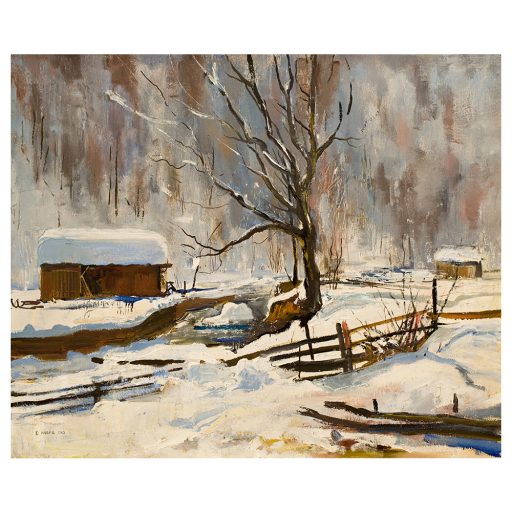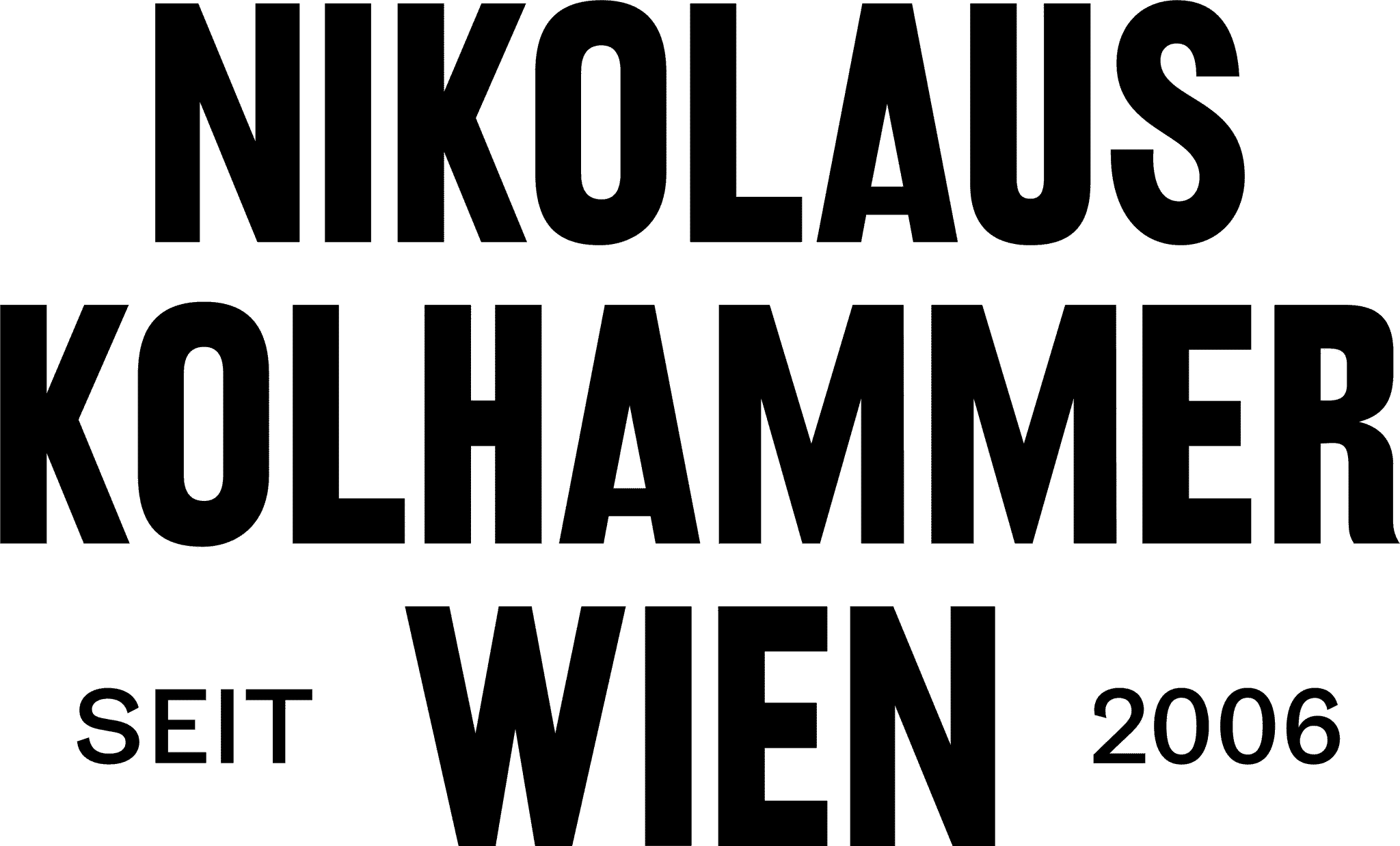Ernst Huber winter landscape 1943
Winter landscape, Ernst Huber (1895 – 1960), 1943, oil on canvas, signed
Out of stock
Description
The young Ernst Huber began his career as an autodidact in the 1920s. The success of his first exhibition in 1919 encouraged him to pursue a career as an artist. Just ten years later he was already a member of the Vienna Secession and regularly took part in its exhibitions. On many journeys through Europe and the world he collected impressions for his watercolours and oil paintings.
In our winter painting from 1943 the artist probably captured a detail of the snow-covered landscape in Wagrain, Salzburg. Huber lived there from 1942 to 1957. The winter close-up shows dense snow in the foreground, a sparse fence, an icy stream leading us into the picture, to the left of which is a snow-covered wooden shed and a solitary tree. The scene is framed by a greyish-brown backdrop, which suggests the snow-covered forest slope in the distance and dragging wafts of mist. Huber creates a dense atmosphere here with a greatly reduced color palette. Brown and grey in various hues, blue and of course white, the color of winter. With this painting, so concise in terms of color and motif, Huber once again demonstrates his masterly skills as a painter of winter scenes.
Artist
Ernst Huber (Vienna 1895 – 1960 Vienna)was an important Austrian painter of the interwar period. Trained as a printmaker and graphic artist, he also briefly attended courses in ornamental drawing at the Vienna School of Arts and Crafts under Otto Prutscher and Karl Witzmann. He taught himself painting as an autodidact. Soon he became part of the group of artists around Anton Faistauer, Oskar Kokoschka or Herbert Boeckl, where he celebrated his first successes. In 1928, he became a member of the Vienna Secession. In the 1920s, he started a lifelong friendship with his fellow painters Franz Kitt, Georg Merkel, Franz von Zülow, Josef Dobrowsky, Ludwig H. Jungnickel and others, in the circle of painters of the so-called Zinkenbacher Malerkolonie. Ernst Huber, like many of his peers, remained attached to the representational in his painting. He found inspiration in landscapes, on his many travels and in the Old Master paintings of Pieter Brueghel the Elder. His winter paintings, in which he often captured the snow-covered landscape of Wagrain in Salzburg, where he lived from 1942 to 1957, are still particularly popular today. In 1935, he received the Austrian “Staatspreis für Malerei” (State Prize for Painting). Works by Ernst Huber can be found in the collections of the Austrian Gallery Belvedere, the Leopold Museum or the Albertina in Vienna.
Inquiry
By submitting the inquiry form, you agree to the use of your data for this inquiry. Privacy Policy












